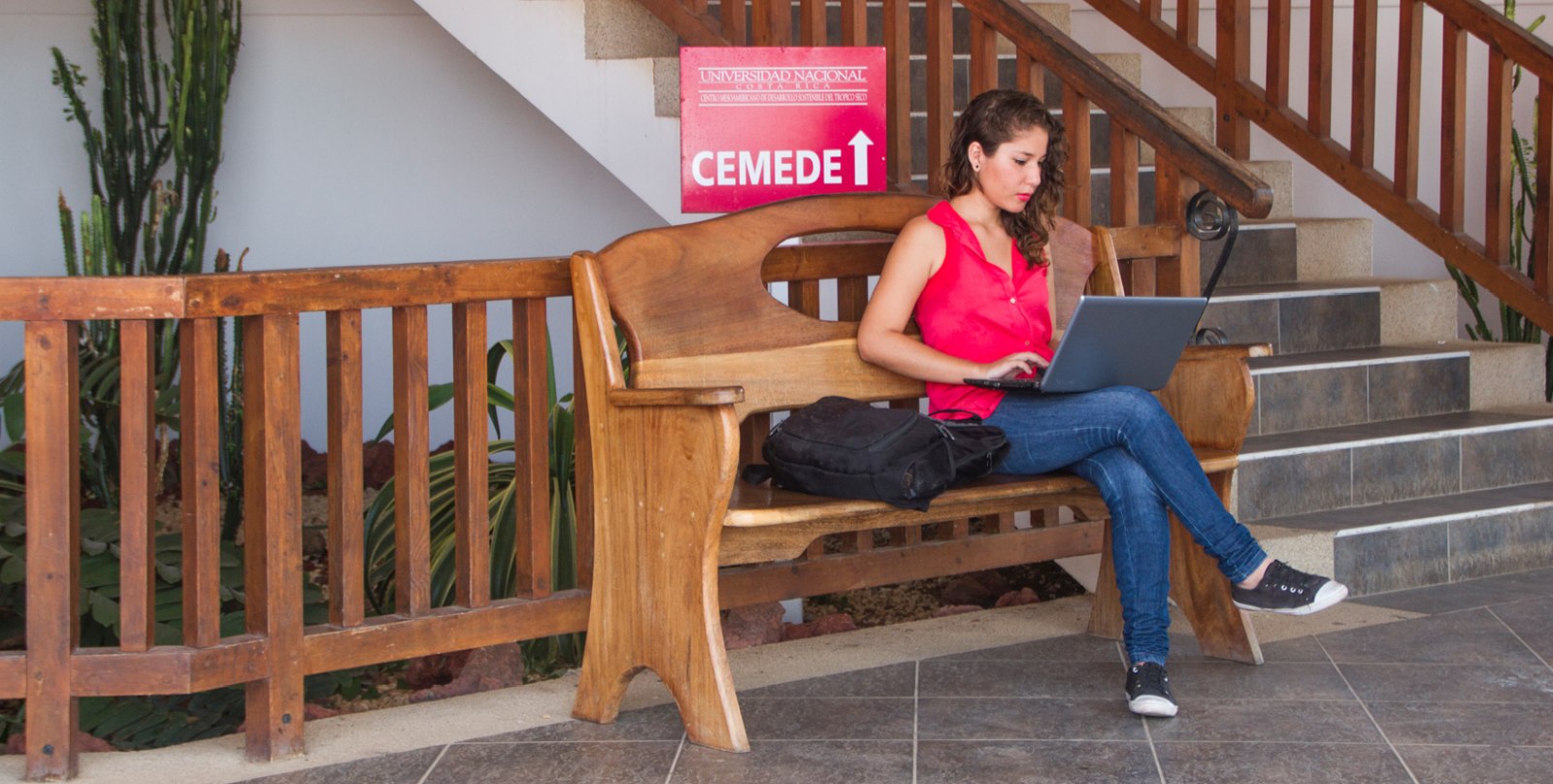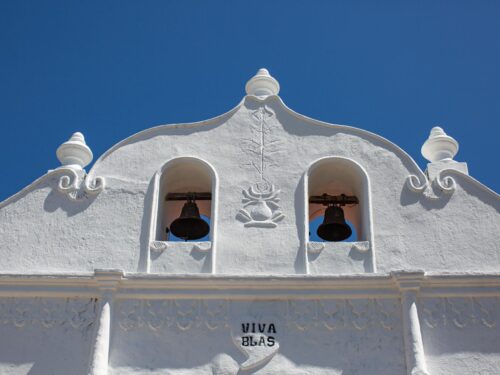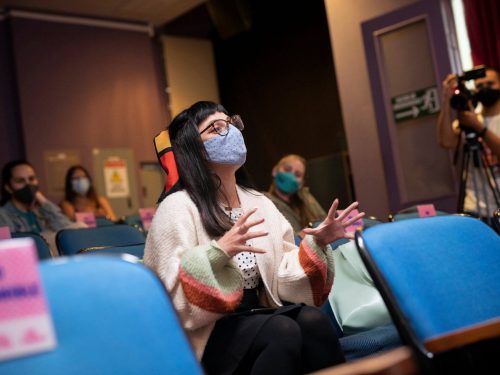
“It wasn’t what I wanted to study – I wanted medicine – but as a plan B I studied administration to avoid ending up without an education, as going to San Jose is very difficult and I don’t have the resources,” commented Ivonne Cruz, a student of the National University (UNA – Universidad Nacional) who lives in Carmona, Nandayure.
Just like Cruz, many youths are unsatisfied and even frustrated by insufficient and at times outdated academic offerings at the university campuses in Nicoya.
Currently, Nicoya has two public and three private universities, in which the most common degree programs are business administration, engineering, education and social sciences and humanities. For young people who want to be doctors, journalists, architects or anthropologists, among other professions, the only option is to move to San Jose.
UNA, for example, offers degrees in administration, sustainable tourism business management, business, international business and information systems engineering.
The dream of Geyling Fuentes, from Esperanza of Nicoya, was to be a graphic designer. However, UNA didn’t open that degree program due to a lack of students. That motivated Fuentes to pursue a business administration degree.
“My first choice was graphic design; I took the admission test and the program wasn’t opened because only 15 people enrolled. It’s a shame because in Nicoya there almost aren’t any graphic designers,” she commented.
In addition to the lack of variety in the degree programs available in the canton, another problem faced by students is delays in finishing their degree due to classes not being available because of insufficient enrollment.
Karol Guillen, from Santa Cruz, studies law at the University of San Jose and told The Voice that the minimum to hold a course is ten students and that on some occasions that number is not met, so students have to wait up to four months to enroll in the course.
“We have to wait until the following semester for them to open some classes, due to the lack of enrollment, and students are delayed,” she indicated.
Alejandra Abadia, is a law student at the University of San Jose from the La Cananga neighborhood in Nicoya, is of the same opinion. For her, “There are semesters in which they close up to two classes. That delays us, and in addition we have to pay more because of it, as we have to pay tuition for one or two subjects.”
The cost of tuition in private universities varies between ₡55,000 and ₡65,000 ($110-130) per semester, regardless of the number of classes in which students enroll. The price of the classes depends on the career path, which can range from ₡60,000 to ₡70,000 ($120-140).
On that regard, Sugey Sanchez, director of the Autonomous University of Central America (UACA – Universidad Autónoma de Centroamerica), said that, “The availability of classes is arranged by semester, and we work with [study] schedules, but there are exceptions when the minimum number of students don’t enroll and the class isn’t held… It all involves operational costs, and it is not profitable for the university.”
For her part, Maria Felix Obando, director of the State University (UNED – Universidad Estatal) in Nicoya, criticized other universities’ manner of promoting some degrees. “The problem with the other universities is the exposure and marketing they do for the degree programs. We have a whole system of marketing we do in the media, and in every enrollment period we travel to communities to go door-to-door to promote the programs,” she said.
In UNED’s case, 54 specialties are offered, derived from degrees such as education sciences, social sciences, administration sciences and natural sciences.
UNED implemented a distance education methodology in which students study from their homes and go once a week to receive tutoring to clarify any doubts.
Sugey Sanchez, from UACA, recognized that the majority of the degrees offered by local universities are saturated in the labor market. However, they work to train excellent professionals. “We understand that the majority of the career fields are saturated, but what we do is train professionals well, with the goal that they can compete in the labor market,” she indicated.
The Most Sought-After and Least Hired Degrees
According to data recorded by the University of Costa Rica, the career fields that are preferred most by students at a national level after graduating from high school are business administration and commercial engineering, marketing and merchandising, accounting and auditing, information systems, finance, computer studies, human resources and electrical mechanics, many of which are not offered by universities in Guanacaste.
According to studies done by the National Council of Rectors (CONARE – Consejo Nacional de Rectores), the degrees with the best job market opportunities are business administration, education administration, criminology, agriculture education, special education, religious education, nursing, math education, science education, English education and psychology, of which at least five are offered in Nicoya.
The fields in which it is most difficult to find a job are biology, journalism, physical therapy, interior design, planning, advertising and sociology, of which only biology and physical therapy are offered in local universities.







Comments